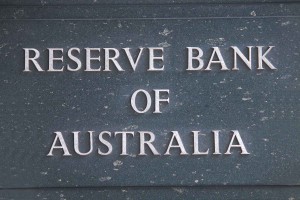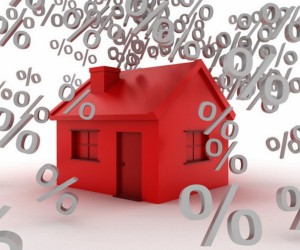Consensus remains the cash rate will be untouched at the Reserve Bank’s board meeting tomorrow, however, out-of-cycle rate hikes could shape a more turbulent lending market in the new year, according to finder.com.au.
All 35 leading Australian economists and experts from the finder.com.a RBA survey are expecting the cash rate to hold for Christmas.
However, the signs of a positive future movement are starting to show, with 26% (7) of experts forecasting upward movement in 2017.
The majority of experts and economists are expecting a rise to take place in the second half of the new year, except for Jessica Darnbrough (Mortgage Choice) and the University of Queensland’s Clement Allan Tisdell, who are both tipping a rate increase as early as March next year.
Graham Cooke, Insights Manager at finder.com.au says it’s likely the Reserve Bank will keep the rate unaltered at tomorrow’s board meeting, but with potential cash rate hikes in the pipeline, customers must continue to review their mortgages.
“Homeowners are unlikely to receive a Christmas bonus from the Reserve Bank this month, as all indicators point to a rate hold. However, it’s likely rates may begin to head north next year so customers should decide on their risk strategy; that is, whether they’d like to opt for a fixed or split rate to leverage current low rates,” he says.
Fifty two percent (14) of experts and economists are predicting at least one rate drop next year, with four (15%) expecting the rate to be cut again in February.
Over one-in-five (22%, 7) experts and economists who commented on the rate cycle are expecting the rate to hit 1.00% or lower before it begins to rise again.
Out-of-cycle rate hikes could be a regular occurrence in the months to come, with several lenders including Westpac, Bank of Sydney and P&N recently announcing rate hikes, marking the second out-of-cycle home loan rate hike since November 2015.
The vast majority (86%, 19) of experts surveyed on this topic said out-of-cycle rate increases are likely to continue into 2017.
Mr Cooke says traditionally banks have closely followed the Reserve Bank cash rate when adjusting home loan lending rates, however this trend may be disrupted in 2017, as banks start to lift rates independently.
“This unusually low-interest environment has broken the mould in terms of rate changes, and with the stagnant nature of monetary policy over the past 12 months, banks are taking the reigns themselves and hiking rates.
“Now could be a good time to lock in a fixed-rate on your mortgage so you can keep your repayments to a minimum, however be aware that this means you won’t benefit should rates begin to fall lower than your secured rate,” he says.
Interestingly, there’s been a 163% surge in the number of people searching for fixed-rate home loans on finder.com.au, following recent announcements of out-of-cycle rate hikes.
This suggests borrowers are looking to lock in competitive rates in anticipation of future independent rate rises.
Here’s what our experts had to say:
Jordan Eliseo, ABC Bullion (Hold): “We remain steadfast in our view that this easing cycle has a lot longer to play out. Despite that, we doubt the RBA will want to move before Christmas, and will wait for further data before making another rate cut in Q1 2017.”
Shane Oliver, AMP Capital (Hold): “Not enough has changed since the last meeting to justify a change.”
John Hewson, Australian National University (Hold): “Treading water to see how global events unfold and to consider domestic numbers as they are released.”
Alison Booth, Australian National University (Hold): “No significant changes in economic fundamentals since the last meeting.”
Peter Munckton, Bank of Queensland (Hold): “The RBA expects inflation to rise in 2017.”
Richard Robinson, BIS Shrapnel (Hold): “(The) dollar has come down, so no need to cut rates. A rate cut is not desirable until the housing market starts to weaken.”
Paul Dales, Capital Economics (Hold): “The RBA is unlikely to play either Santa or Scrooge as the disappointing weak activity, employment and wage data has been offset by the impending boost to the economy from the leap in commodity prices.”
Savanth Sebastian, CommSec (Hold): “The Reserve Bank seems comfortable with how the economy is evolving. The recent lift in commodity prices would provide more confidence that medium term growth prospects have improved.”
Dr Andrew Wilson, Domain Group (Hold): “The RBA will hold given that it is the end of the year, as well as the fact that there will be a relative lack of impact from any change.”
Scott Morgan, Greater Bank (Hold): “There is no imperative for the RBA to change rates at the moment. The RBA and the rest of the world is watching the United States, particularly in relation to changes in that country’s interest rates.”
Mark Brimble , Griffith University (Hold): “The number of moving parts continues to increase and while the bias remains to the downside, the RBA is likely to sit on the sidelines and wait for the dust to settle and hope that consumers will spend over the festive season to support the economy.”
Peter Haller, Heritage Bank (Hold): “The RBA will wait to see the next quarterly CPI print before considering any further changes to the cash rate.”
Shane Garrett, Housing Industry Association (Hold): “The current rate is appropriate given the mix of subdued inflationary pressures and reasonably robust economic growth.”
Alex Joiner, IFM Investors (Hold): “The RBA currently seems comfortable with policy settings as long as inflation is heading back towards target.”
Robert Montgomery, Infrastructure Partnerships Australia (Hold): “The RBA will hold rates at 1.5% and wait for further data releases before making a change to the cash rate.”
Michael Witts, ING Bank (Hold): “The global interest rate outlook has moved sharply towards higher interest rates following the US election. Against this background and solid domestic economy the RBA will be on hold for an extended period.”
Leanne Pilkington, Laing+Simmons (Hold): “It’s the prudent course. The cost of borrowing is affordable for those genuinely looking to buy and while it appears the next rate movement will be up, subdued economic growth at the moment means an increase should be some time away yet.”
Nicholas Gruen, Lateral Economics (Hold): “Because it is consistent with what the bank has said, even if it makes little sense to me.”
Stephen Koukoulas , Market Economics (Hold): “The RBA refuse to note the record low inflation rate and wages growth, which in normal circumstances would demand lower interest rates. It looks like being a policy error.”
Michael Yardney, Metropole Property Strategists (Hold): “The RBA will hold rates at 1.5% They are likely to take a wait and see approach to what’s happening to overseas rates at a time when the economic data does little to alter the RBA’s outlook for the Australian economy. Also the strong Sydney and Melbourne housing markets don’t need any extra stimulus.”
Emily Dabbs, Moody’s Analytics (Hold): “Inflation has shown signs of improvement and the unemployment rate remains low, supported by accommodative monetary policy. Further easing is unlikely at this stage given rising house prices and expectations of U.S. rate hikes.”
Jessica Darnbrough, Mortgage Choice (Hold): “The Reserve Bank would be keen to see what the US Federal Reserve does with rates before it makes any adjustments to the current monetary policy setting.”
Ken Sayer, Mortgage House (Hold): “The downward pressure on rates has been overshadowed by international influences.”
Saul Eslake, Economist (Hold): “Nothing has happened since the last meeting to have persuaded the RBA that current monetary policy settings need to be adjusted in order to foster stable growth and a return of inflation to the target range over time.”
Alan Oster, Nab (Hold): “It’s too early yet to judge what impact RBA’s actions have had on the economy. Worries about the economy offset by house prices. Inflation still low but can wait.”
Jonathan Chancellor, Property Observer (Hold): “The last rate cut is still working its way through the economy, so the board’s wait and see will dictate no further change this year.”
Matthew Peter, QIC (Hold): “The RBA finds itself in a very constrained space. Tepid economic activity, lacklustre business investment combined with a weak labour market and low wage growth call for lower interest rates. However, an overheated housing market, an improving global economy, rising terms of trade and moderating currency suggest rates should remain on hold or even rise. Caught between these countervailing forces, the RBA will remain on hold at their coming December meeting.”
Noel Whittaker, QUT (Hold): “(The RBA is) awaiting the USA decision.”
Angus Raine, Raine & Horne (Hold): “(It’s) same same with economy.”
Christine Williams, Smarter Property Investing (Hold): “Unemployment has risen slightly around Australia.”
Janu Chan, St.George Bank (Hold): “Reaction to upcoming GDP data, which we expect to be weak. If there is any comment on housing construction in the wake of recent building approvals data, and as always, the final paragraph for any guidance on policy.”
Steven Milch, Suncorp (Hold): “The inflation and growth outlook are not sufficiently changed since the November meeting as to warrant a cash rate change.”
George Tharenou, UBS (Hold): “We believe the RBA has drawn a “line in the sand” at the 1½% y/y pace for underlying inflation, given it is the lower bound of every single point forecast the RBA has out until the end of 2018. If underlying inflation were to drift below this in coming quarters, the RBA would likely feel under some pressure to further lower the cash rate. Absent this, we see the RBA on hold at 1.5% for the foreseeable future.”
Clement Allan Tisdell, University of Queensland (Hold): “Wise to wait until the US rate changes or a significant change in the Australian economy becomes apparent.”
Bill Evans, Westpac (Hold): “The Board is certain to keep rates on hold despite the prospect of a weak print for GDP growth in Australia in the September quarter.”





No comments:
Post a Comment